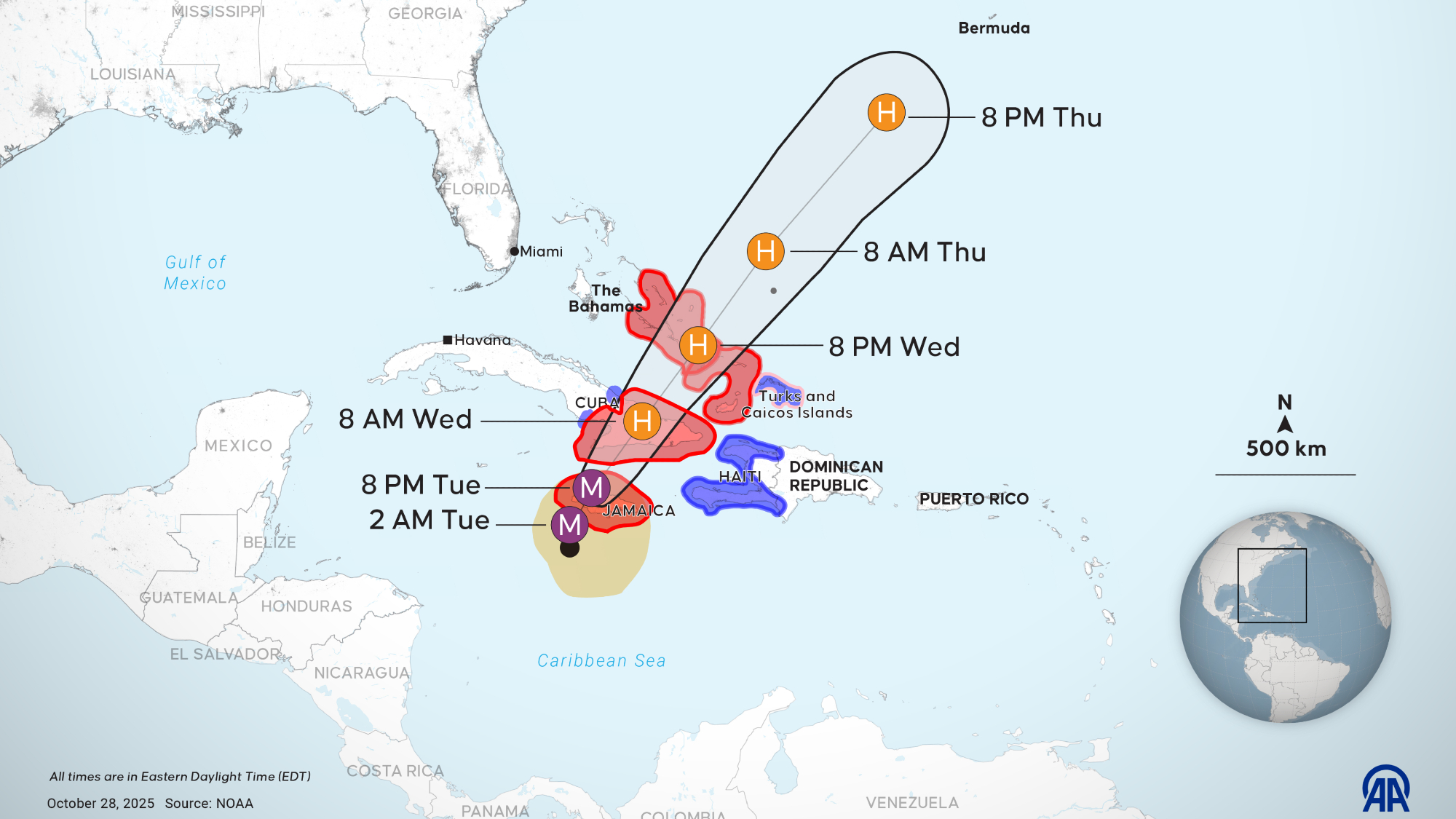How Trump turned a president's most sacred duty into a disgraceful controversy
There's nothing Trump won't turn into an arena of disputation and division


We often expect too much of those we elect president. We want them to bring us prosperity, create peace around the world, prevent tragedy from befalling us, and solve every societal ill. We give them more blame than they deserve when things go poorly and more credit than they deserve when things go well. And yet when we try to be more modest in our demands, we might at least ask that they not make everything worse — and right now, that would mean asking of the president that he not exacerbate the intense and ugly divisions that mark this era in our history.
It's a nice thought. But instead what we've got is Donald J. Trump. His talents may be sometimes hard to locate, but one thing he's very good at is sowing division and discord.
It isn't that we didn't know that by the time election day came, but he continues to amaze with his ability to take presidential duties that up until now had been sacred or just banal and twist them into something disputatious and ugly.
The Week
Escape your echo chamber. Get the facts behind the news, plus analysis from multiple perspectives.

Sign up for The Week's Free Newsletters
From our morning news briefing to a weekly Good News Newsletter, get the best of The Week delivered directly to your inbox.
From our morning news briefing to a weekly Good News Newsletter, get the best of The Week delivered directly to your inbox.
Can he turn the president's most somber duty — comforting the families of those who died in military operations he ordered — into a nasty controversy? Oh yes he can.
That's what he did this week, first insisting at a press conference that presidents before him (especially Barack Obama) didn't call the families of the fallen, and only he is so compassionate. When everyone pointed out that this was an odious lie, he rushed to finally call the families of the American soldiers killed two weeks ago in Niger — and managed to screw that up too. According to Rep. Frederica Wilson (D-Fla.), a friend of the family of the late Sgt. La David Johnson who was with them when they received the call, President Trump said that Johnson "must have known what he signed up for," an impossibly insensitive thing to say. Sgt. Johnson's mother says that Wilson's account is accurate.
No one suggests that Trump set out to horrify Sgt. Johnson's widow; the problem is that he is a man completely devoid of empathy, so it's hard for him to find comforting words. But let's imagine that something similar had happened with another president, where he said something inappropriate or even unintentionally offensive to a woman whose husband had just given his life in service to the country. And let's say a member of Congress from the opposition party was criticizing him for it. Any president — Barack Obama, George W. Bush, any of them — would have almost certainly reacted in the same way. They would have said something like, "Those conversations are private, and when a member of our military makes the ultimate sacrifice, it isn't something we should have a partisan argument about. The only thing we should do is honor and celebrate them." And they would have left it at that.
But not Trump, who is so petty and insecure that he is constitutionally incapable of letting any criticism go by without a counter-attack. He took to Twitter to say: "Democrat Congresswoman totally fabricated what I said to the wife of a soldier who died in action (and I have proof). Sad!" We all know he doesn't have "proof," just like he lied about having tapes of his conversations with James Comey.
A free daily email with the biggest news stories of the day – and the best features from TheWeek.com
So here we are, with Trump getting very close to initiating a squabble with the family of a dead American soldier. Can you imagine any other president doing this?
Of course not, just like you can't imagine any other president going before military audiences and praising them for voting for him, or telling service members to support his party's agenda, or going in front of the Boy Scout Jamboree and giving a speech so filled with inappropriate political content (and even some adult themes) that it led the head of the scouts to issue a public apology.
And, of course, if Trump takes that one more step and attacks Sgt. Johnson's family — and no one will be surprised if he does — it wouldn't even be the first time he has gotten into a feud with a Gold Star family. During the 2016 campaign when he was going after Khizr and Ghazala Khan, whose son was killed in Iraq, all he could see was that they had criticized him; the idea that maybe he ought to show a little class and let it slide off him was not something he could entertain.
Every event, every development, every new day of his presidency has become another opportunity for Trump to cause controversy, anger, and division. If there's any strategy at work, it probably involves the president saying to himself that division is what got him here, which is undeniably true. It was anger and resentment that led all those white voters to flock to the polls for him, and he's not going to change how he operates now, particularly since division may be the only thing that will get him re-elected.
But there are times when we demand that the president represent all of us. There will be occasions when we look to him to act as a unifying force — when there's a natural disaster, a terrorist attack, a mass shooting, any time when partisanship seems secondary and we all want to come together as Americans. Some presidents perform better than others at those moments, but until now, all have at least tried to be what the country was hoping for. Not Trump, though. He goes to Houston and lauds his crowd size. Puerto Rico gets devastated and he says the islanders are lazy. Fifty-eight people get murdered in Las Vegas and he says it's a "miracle" more weren't killed.
He'll face many more of those moments, because every president does. And he'll fail every time.
Paul Waldman is a senior writer with The American Prospect magazine and a blogger for The Washington Post. His writing has appeared in dozens of newspapers, magazines, and web sites, and he is the author or co-author of four books on media and politics.
-
 Navy jet, helicopter crash half-hour apart off carrier
Navy jet, helicopter crash half-hour apart off carrierSpeed Read A US Navy helicopter and a fighter jet both crashed in the same half-hour during separate operations
-
 Hurricane Melissa slams Jamaica as Category 5 storm
Hurricane Melissa slams Jamaica as Category 5 stormSpeed Read The year’s most powerful storm is also expected to be the strongest ever recorded in Jamaica
-
 Protesters fight to topple one of Africa’s longstanding authoritarian nations
Protesters fight to topple one of Africa’s longstanding authoritarian nationsIn the Spotlight Cameroon’s president has been in office 1982
-
 Millions turn out for anti-Trump ‘No Kings’ rallies
Millions turn out for anti-Trump ‘No Kings’ ralliesSpeed Read An estimated 7 million people participated, 2 million more than at the first ‘No Kings’ protest in June
-
 Ghislaine Maxwell: angling for a Trump pardon
Ghislaine Maxwell: angling for a Trump pardonTalking Point Convicted sex trafficker's testimony could shed new light on president's links to Jeffrey Epstein
-
 The last words and final moments of 40 presidents
The last words and final moments of 40 presidentsThe Explainer Some are eloquent quotes worthy of the holders of the highest office in the nation, and others... aren't
-
 The JFK files: the truth at last?
The JFK files: the truth at last?In The Spotlight More than 64,000 previously classified documents relating the 1963 assassination of John F. Kennedy have been released by the Trump administration
-
 'Seriously, not literally': how should the world take Donald Trump?
'Seriously, not literally': how should the world take Donald Trump?Today's big question White House rhetoric and reality look likely to become increasingly blurred
-
 Will Trump's 'madman' strategy pay off?
Will Trump's 'madman' strategy pay off?Today's Big Question Incoming US president likes to seem unpredictable but, this time round, world leaders could be wise to his playbook
-
 Democrats vs. Republicans: who are US billionaires backing?
Democrats vs. Republicans: who are US billionaires backing?The Explainer Younger tech titans join 'boys' club throwing money and support' behind President Trump, while older plutocrats quietly rebuke new administration
-
 US election: where things stand with one week to go
US election: where things stand with one week to goThe Explainer Harris' lead in the polls has been narrowing in Trump's favour, but her campaign remains 'cautiously optimistic'
